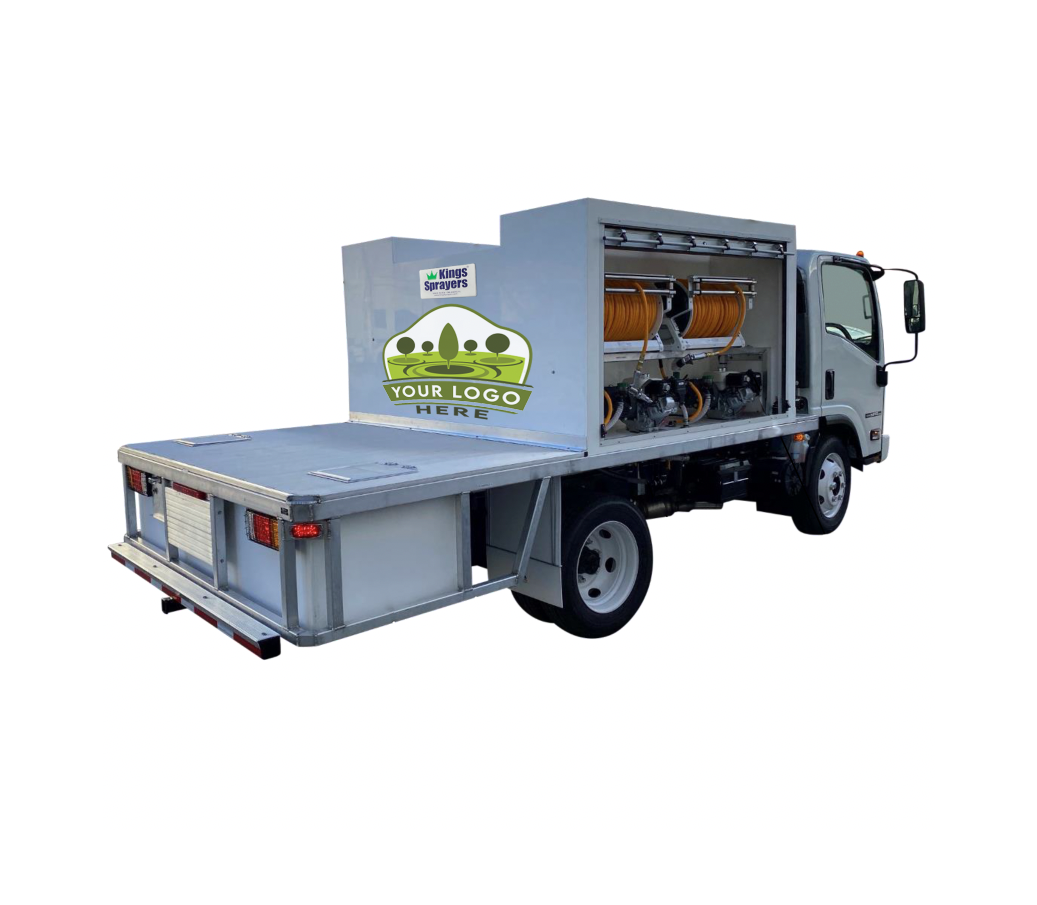3 Steps for Picking a Roller Pump
Choosing the right roller pump for your sprayer and application needs can be tricky. After all, the pump is the heart of the sprayer and essential to efficient operation. Roller pumps are ideal for turf spraying of herbicides and pesticides, liquid fertilizers and many other liquids. These spray pumps have a low initial cost and are pretty versatile too. Still, there’s no one solution that meets everyone’s needs making the search for the best model, at times, mystifying.
Before we get into the nitty gritty, it’s important to note the basics. A roller pump has 4 to 8 rollers depending on the model, that revolve inside the pump housing to force the spray solution out to the nozzle. These pumps operate at PTO speeds of 540 and 1000 RPM – a definite point to note for choosing the right pump. Roller pumps have a pressure range up to 300 psi and flow rates up to 74 GPM. These products easily adapt to PTO or gas engine drives. They require no check valves while providing positive displacement characteristics. Got it? Good. Now let’s get into choosing the right roller pump.
Consider this real-life scenario that one of our customers shared with us:
I bought a used 55 gallon tank sprayer with wand and boom for spraying weeds and fire control. It had a 4 roller pump on it that quit/froze a year and a half ago. I replaced with another 4 roller pump and this spring it froze again. The sprayer has a 3hp Briggs motor with a 5/8'' shaft. I would like to know if I can use a larger pump and/or what you would suggest.
Know the answer? If not, take a look at the steps below for easy identification of the right roller pump for the job. Or skip ahead and check out the solution for this particular scenario.
3 Steps for Selecting the Right Roller Pump
1.) Determine your highest spraying pressure (psi).
For spray guns, 40 psi is often typical at the nozzle, but to properly select a pump that can deliver the right spray pressure, you should calculate it yourself. Keep in mind that pressure losses are normal and should be factored into the equation. It’s recommended that you add 120 psi for system pressure losses.
Desired Pressure at Nozzle (psi)
+ Hose Pressure Loss (psi)
Total Pump Pressure Needed (psi)
2.) Calculate the total pump flow (gpm) using the formula below.
Now you’ll need to know the boom flow and agitation for that calculation. You can determine your boom flow (GPM) by multiplying the GPM per nozzle by the number of nozzles. The flow required for agitation is a little easier as that is determined by tank size. For a 500-gallon tank you’re looking at 25 GPM, 750-gallon tank will be 37 GPM, 1,000-gallon tank at 50 GPM, and 1,500-gallon tank at 75 GPM.
Boom Flow (GPM)
+ Agitation (GPM)
Total Pump Flow (GPM)
3.) Choose the pump based on the manufacturer’s catalog performance charts.
Sounds simple, but in addition to the numbers you just crunched you’ll also want to keep chemical compatibility in mind. Specific seal, roller and casting materials can be selected for compatibility with certain herbicides, pesticides, fungicides and fertilizers. The three housing material options – Cast Iron, such as those from Delavan, or Ni-Resist or Silver from Hypro's roller pumps – are particularly important for total pump life. Studies have shown, especially with weed control chemicals such as Roundup, that the Silver Series XL line is more durable and affords a 10x longer pump life.
Shop Roller Pumps
Roller Pump Dilemma Solution
Now back to our example. This customer had a standard gas engine without gear reduction. In that case, the best solution was to replace the pump with another 4 roller pump (product number: 4101C) and keep an eye on maintenance for better long-term wear. Another solution would have been to use a different model, but that would have resulted in purchasing a gear reduced engine. In the long run, this customer was better off just replacing the pump with the same model.
Have anything to add or a dilemma our technical gurus can assist with? Share in the comments below or contact us today.


